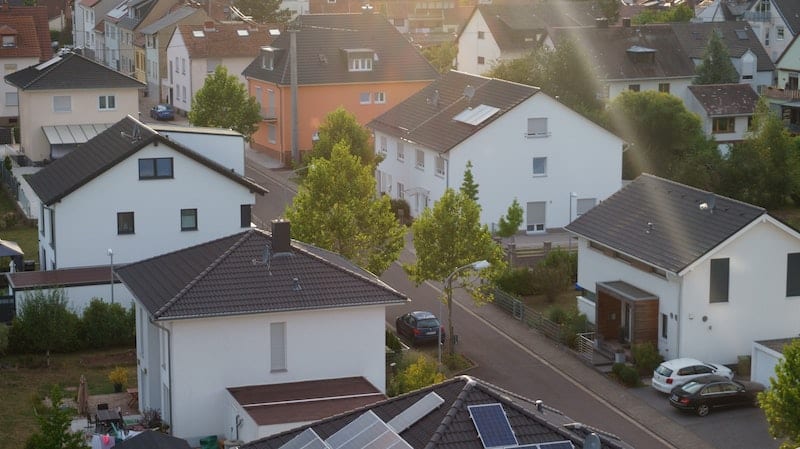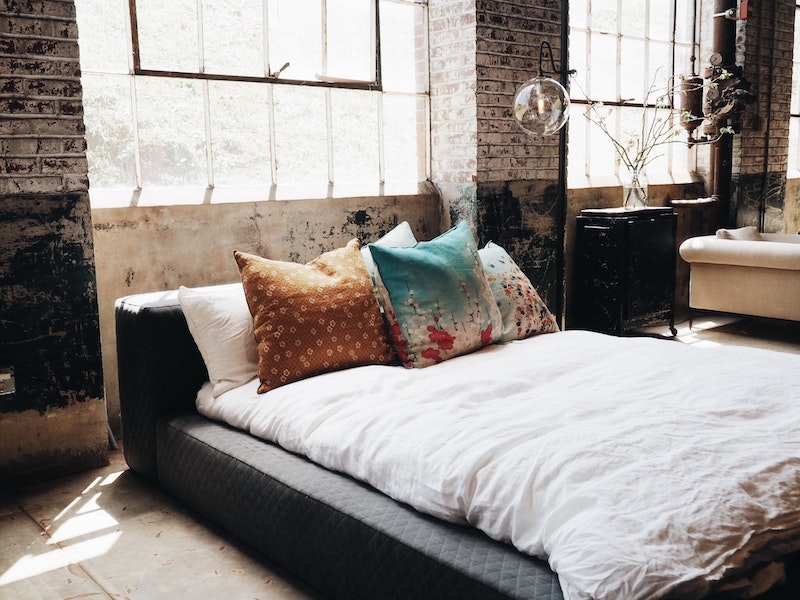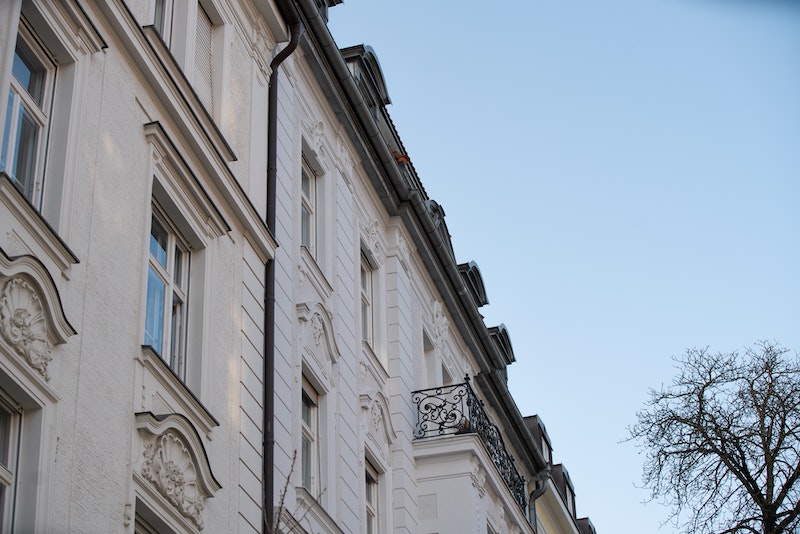If you’ve ever moved to a different country, you’ll probably agree that, besides finding a suitable job, securing yourself a decent place to live is a top priority. However, the different ways of finding an apartment, rules around renting, and renters rights are different in different countries. This can be tricky, especially if you’re an expat used to your own country’s ‘rules’.
But don’t worry, you don’t have to go through the process alone. In this post, we’ll take a deep dive into the German rental market, its peculiarities, and general things to watch out for.
Here’s what we’ll cover:
- Renting vs. buying an apartment in Germany
- Rental prices in Germany
- Surprising facts about renting a German apartment
- How to look for an apartment in Germany
- What to bring to an apartment viewing
- The German security deposit (Mietkaution)
Should I rent or… should I buy?
First of all, this decision probably depends on how long you will plan to stay in Germany. If you’re there on a work assignment that lasts two years, it might not even be worth it to consider home ownership. If you’ve decided to set down actual roots in your new country of choice, then that’s a different story.
But what do “Ze Germans” prefer? Surprisingly, a bigger part of the German population is renting a place rather than buying it. Renting is still the rage even though, depending on where you want to live, prices seem quite reasonable throughout Germany.

According to a Statista study from 2018, nearly 60% of all German households were renters—marking Germany as a country with a relatively low home ownership rate among European countries. But why is that, you might be asking? We assume that at least part of the reason is that German law is largely pro-renter. Compared to other places in the world, renters enjoy a set of rights that protect them, like in the event of unjustified conviction. Most tenancies in Germany are unlimited, meaning you cannot be kicked out of your apartment all that easily—only if your landlord wants to move into their property themselves (called ‘Eigenbedarf’), or in the event you don’t pay your rent and amenities.
Pro tip: Should you decide to join the crowd of German renters, we recommend a membership for your local ‘Mieterverein’ or ‘Mieterschutzbund’ (German tenant association). This might sound unnecessary since renters are so protected in Germany. However, it’s still worth joining since membership fees are pretty low and the organization can really help you out in case you ever need legal advice regarding your rent, renters rights, or in case you simply need some support while handling a quick negotiation with your landlord.
Now that we’ve settled the renting vs. buying aspect, let’s look at how much it costs to actually rent a place in Germany.
5 facts about rental prices in Germany
‘Cold’ vs. ‘warm’ rent.
When looking for an apartment, you’ll likely encounter two concepts related to rent in Germany—cold rent (‘Kaltmiete’) vs. warm rent (‘Warmmiete’). For the former, amenities are excluded, whereas the latter includes additional expenses such as electricity and water costs and thus, will be significantly higher than ‘Kaltmiete’.
Average rent prices.
According to Statista, in 2020 the average monthly (cold) rent of a private household was 745 Euros. Doesn’t sound too bad, does it? However, naturally rent prices vary depending on where you live. So don’t expect the same rent in Berlin, Bielefeld, and Baden-Baden.
Most expensive German cities to rent an apartment.
You might have guessed it, the popular German cities such as Munich, Berlin, Frankfurt and Hamburg are high up on the list of most expensive rentals across Germany. According to Statista, renting an apartment in Munich in 2022 costs on average 19,79 Euro per square meter, which would add up to approximately 1,200 Euros for a 646 square foot apartment. For a full overview, check out this list of the ten most expensive German cities.
‘Rent Mirror’ or as the Germans would say: ‘Mietspiegel’.
What about your city of choice? How can you know if the apartment you’ve found is priced reasonably, or if you’re being ripped off by a greedy landlord? We suggest you check out the ‘Mietspiegel’ (rent mirror) for your city. For example, if you’re planning on renting in beautiful Freiburg right next to the scenic Black Forest, check out the ‘Mietspiegel Freiburg’.
This resource provides you with information regarding average local rent (‘Kaltmiete’) for the different neighborhoods.

Is the cost of rent increasing in Germany?
The short answer is, yes, it definitely is.
According to the Federal Statistical Office, German rent has increased by over 10% on average between 2015 and July 2022. However, this only applies to the average rent. Rent prices in popular cities such as Berlin have not only increased, but rather skyrocketed. Between the third quarter of 2021 and the third quarter of 2022, rent in the German capital climbed by over 20%.
Now that you know all about German rent prices, let’s dig into some facts about the German rental market as a whole.
3 surprising facts about renting an apartment in Germany
- A lot of German rental flats come unfurnished.
The majority of German rentals come empty—they don’t even include a built-in-kitchen (unimaginable in the States, right?). This leaves you with a couple of options: you either a) bring your own kitchen (watch out for long delivery times and high prices!), b) try to buy the former tenant’s kitchen, or c) go for (the few) apartments for rent that come with a kitchen by including the right lingo in your search—in this case ‘EBK’ or ‘Einbauküche’.
- Germans count differently.
Germans count the overall number of rooms, and not bedrooms. So if your apartment consists of one bedroom and one living room/dining room, it’s a 2-room apartment (‘Zweizimmerwohnung’). This is important, especially if you’re planning on sharing your apartment with roommates, and need to make sure it has a sufficient number of separate bedrooms.
- Germans start counting at the ground floor level.
In the US, when entering through the front door of a building, you find yourself on the first floor, the floor above is called the second floor, and so on. However, in Germany the floor on the street level is referred to as the ground floor (‘Erdgeschoss’), and the floor above that as the first floor. This means that any expat, living on the second floor in a German building actually lives on the third floor in US terms. We recommend you factor this in in case the building has no elevator.
Now that you know what to watch out for when it comes to German rentals, let’s check which search platforms might come in handy in your apartment hunt.
How to look for an apartment in Germany
Despite the fact that at times, you might feel that Germans are still pretty ‘old-school’ when it comes to technology, most of the initial apartment hunting happens online, on the following platforms:
- ImmobilienScout 24
- Immowelt
- Immonet
These three are all quite popular among Germans. However, if you already know you want to live with roomies, check out wg-gesucht.de, a platform for finding shared apartments (‘Wohngemeinschaft’ or ‘WG’).
If you’ve got some spare cash at hand and no time to engage in endless internet searches, you can also work with a real estate agent. They know the German language, are familiar with the market, and can save you a huge amount of time. On top of that, you’ll only have to pay the broker once they’ve actually found you a suitable apartment. But how much will you have to pay exactly? Usually if you hire an agent, you will need to pay the equivalent of three months rent.
Another piece of advice: Use your personal network—even if it’s (still) pretty small. Like in any country, if someone recommends you to a potential landlord, you’ll have a much better chance of actually securing yourself a spot.
So, if you think you’ve found the perfect place for you, what would you need to bring to an apartment viewing to maximize your chances?

5 things to bring to a German apartment viewing
As you’re probably aware by now, Germans are quite a serious people, and apartment viewing is no exception. This means that your potential landlord will expect you to come as prepared as possible. This especially applies to expats who haven’t mastered the German language yet.
So, let’s quickly review what you’ll have to bring.
1. Schufa-Auskunft. This is basically like a credit report. It shows your landlord that you’ll be able to pay your rent every month. However, if you’ve just moved to Germany, this document might be blank. If this is the case, make sure to bring an alternate document that shows that you have sufficient funds, like a work contract or tax returns.
2. Your last three payslips. If you’re a freelancer, bring a statement of income from a tax advisor instead. Just so you know, in Germany, roughly one third of your salary should be budgeted for your monthly rent.
3. Mietschuldenfreiheitsbescheinigung. Quite high up on the list of longest German expressions ever, but what does it mean? This document confirms that you’ve always paid your rent and don’t owe your previous landlord any money (Here’s a template).
4. Your ID—plus a copy of your ID.
5. Bonus: Proof of your personal liability and contents insurance. Contents and liability insurance (which taken together are quite similar to US renters insurance) aren’t mandatory in Germany. Still, landlords might ask you for proof of both personal liability (“Privathaftpflichtversicherung”) and contents insurance (“Hausratversicherung”).
According to the German Tenants’ Association (“Deutscher Mieterbund”) this request isn’t legally valid. However, reality looks slightly different. As you know by now, there’s lots of competition when it comes to affordable housing in Germany, so you should give yourself a head start, and consider getting yourself both insurances and look as appealing as possible to your potential new landlord .
Here’s what they cover in a nutshell:
- Personal liability insurance. This insurance covers you if you accidentally injure others or cause damage to their stuff—including your rental apartment. It’s no wonder landlords really want you to get this insurance.
- Contents insurance. Your contents policy protects your stuff, more specifically everything you’d take with you if you were to move, from damages caused by things like fire, tap water, or a burglary.
A few (last) words on German rent security deposits (‘Mietkaution’)
The rent deposit (‘Mietkaution’) serves as a security for your landlord, and can be used in case you accidentally cause damage to the apartment, fail to settle outstanding bills, or simply haven’t paid up on time. The maximum amount your landlord can ask for in a security deposit is three months of rent (‘Kaltmiete’).
Btw, if your landlord refuses to pay back your deposit after you move out, check out these tips to help you get your money back.
Let the apartment hunt begin!


